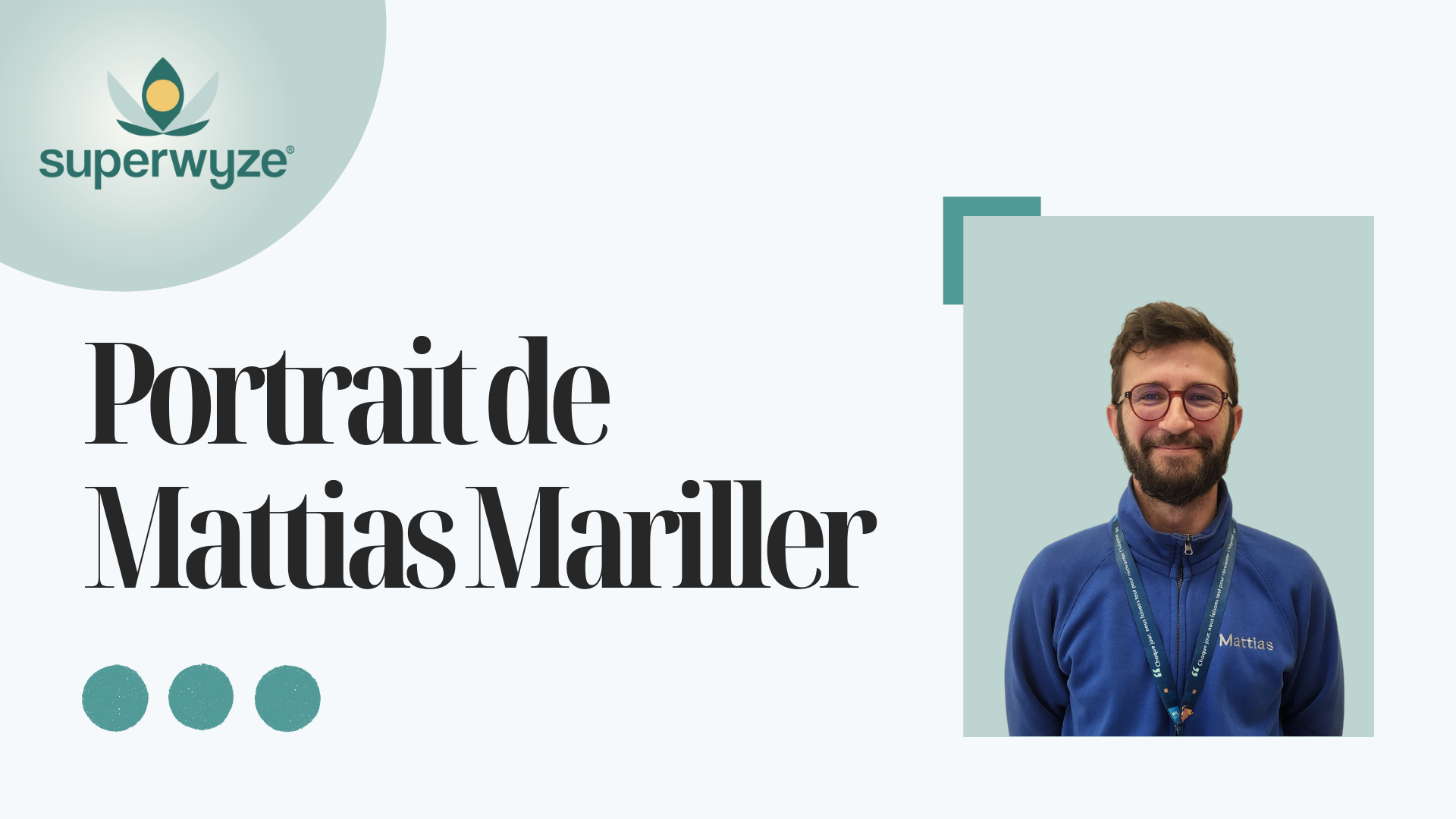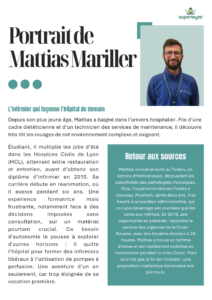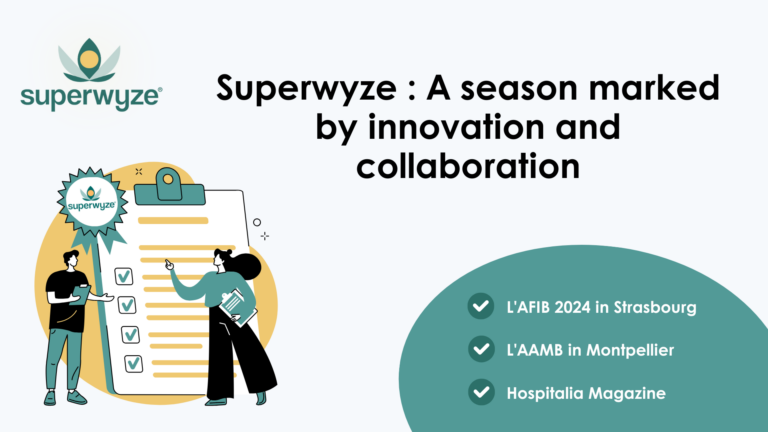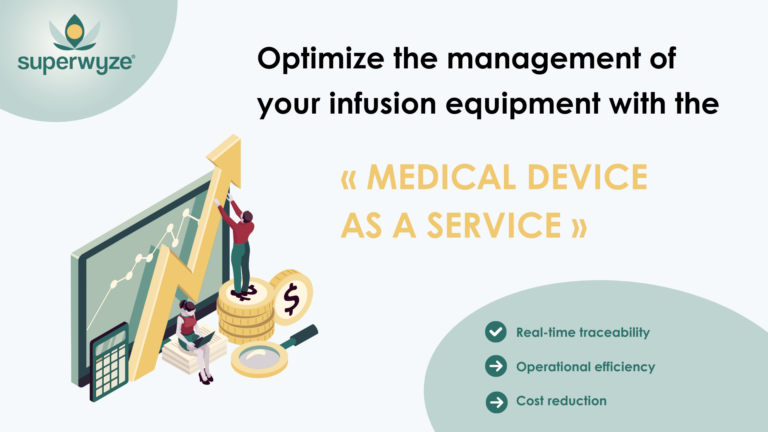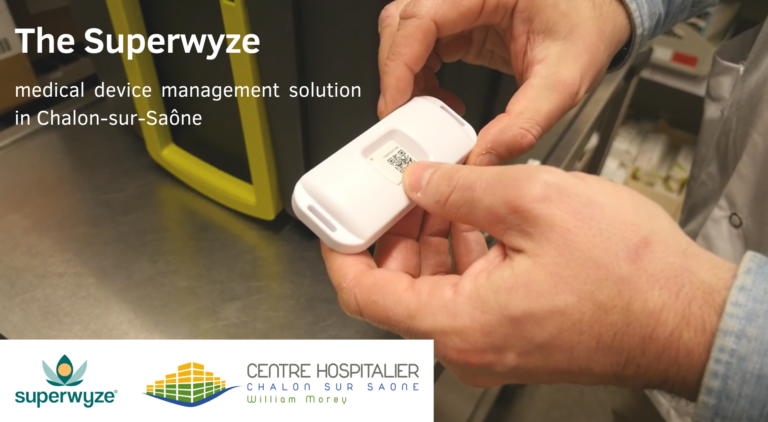The nurse shaping tomorrow’s hospital
From an early age, Mattias was immersed in the world of hospitals. The son of a dietician and a maintenance technician, he discovered the workings of this complex and demanding environment at an early age.
As a student, he worked a number of summer jobs at the Hospices Civils de Lyon(HCL), alternating between catering and maintenance, before graduating as a nurse in 2010. His career began in intensive care, where he worked for six years. It was a formative but frustrating experience, particularly when faced with decisions imposed without consultation on crucial equipment. This need for autonomy led him to explore new horizons: he left the hospital to train private nurses in the use of infusion pumps. This adventure lasted just one year, however, as it was too far removed from his original vocation.
Back to basics
Mattias then returned to Tonkin, where he worked in the hemodialysis department, discovering the specificities of chronic pathologies. He was then drawn back to the world of private practice. However, after two years, he came up against the administrative burden, which took up more of his time than the care itself. In 2019, an opportunity arose to join the Croix-Rousse emergency department, with hours extended to 24 hours. Mattias finds the rhythm intense, and is quickly mobilized in intensive care during the Covid crisis. But that wasn’t the end of the story: an unexpected offer turned his career upside down.
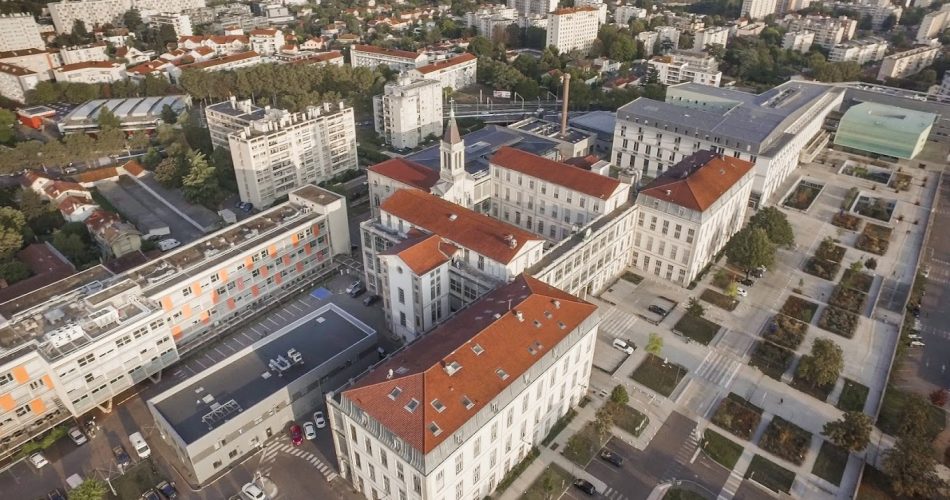
A message for his colleagues
To those hesitating to take on large-scale projects, he appeals: “Go for it, it’s rewarding. But you have to be ready to get out of your own way and meet dozens of people from very different worlds.”
For Mattias, modernizing the hospital is more than an ambition: it’s a mission. And he’s ready to put all his energy into it, so that tomorrow’s hospital will no longer be perceived as a problem to be overcome, but as a place where people feel welcomed and supported.
The turning point in the Fluence project
When offered a key position in the Fluence project, aimed at modernizing the hospital through innovative technologies, Mattias says “yes” without hesitation. The challenge goes beyond direct care: it involves imagining and designing the tools of the future, in collaboration with start-ups and manufacturers.
His experience as a nurse is a major asset. “I create the tools I’d like to use myself,” he explains. Whether it’s connected bracelets for patients or interfaces for caregivers, he ensures that each innovation meets real needs in the field.
However, the obstacles are many: influence struggles, budget constraints, union consultations, and a cultural gap with the industrial world. Mattias has to learn to deal with a wide variety of people, some of whom are not familiar with the language of medicine. But his appetite for technology – inherited from a childhood marked by avant-garde parents – helps him to overcome these challenges.
A vision for a reinvented hospital
What motivates Mattias is a profound desire to transform the image of the hospital. “Today, coming to hospital is often experienced as an ordeal: discomfort, overworked staff, aging equipment. I want to change that.
Inspired by visits such as that to a palliative care unit in London and a wine bar integrated into the Clermont-Ferrand University Hospital, he dreams of a rehumanized hospital. “It’s essential to restore enthusiasm, even in difficult times,” he asserts.
Despite the ordeal, Mattias has no regrets. This project has opened up new prospects for him: perhaps a career in healthcare innovation, where he could continue to reconcile personal values with the modernization of public service.
Si vous souhaitez conserver l’interview complète de Mattias, vous pouvez la télécharger en PDF dès maintenant en cliquant ci-dessous : 👇
